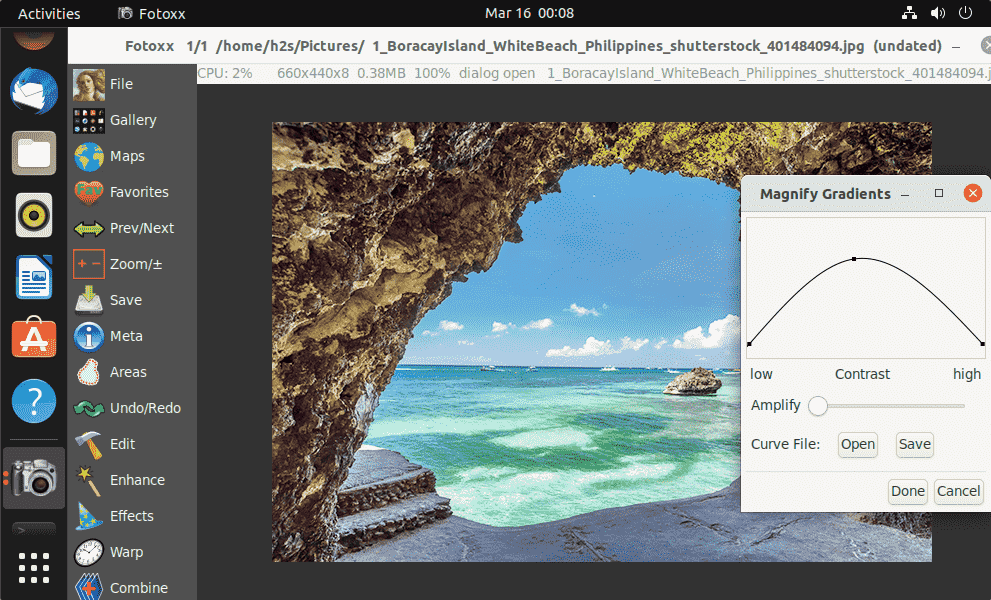Justin Tadlock
WPCloudDeploy recently launched version 4.10.5 of its rapidly-maturing WordPress plugin of the same name. The project is a WordPress-native replacement for SaaS services like Cloudways, Ploi, SpinupWP, and others.
Customers still need to hook up to a cloud server provider, such as Digital Ocean, Linode, AWS, or elsewhere. However, the project seeks to cut out the middleman for developers and agencies running multiple sites. They are specifically targeting those who would routinely manage 20 or more.
“It’s a true plugin where everything you need runs on your own site (except, of course, the other servers you are provisioning and managing which reside at their respective cloud server providers),” said WPCloudDeploy owner Nigel Bahadur.
Technically, WPCloudDeploy opened to the public in March 2020, but Bahadur was not ready to aggressively start letting the community know about it. He said the team is now at a point where they have a core group of users who are happy with the plugin. They have been rolling out new functionality every month for a year and a half and feel like it goes above and beyond alternatives.
“We were basically in stealth mode for most of that time — we did enough marketing to get a core group of users and then tried to make those users happy,” he said. “We even offered a heavily discounted lifetime license last year during the Black Friday sales period –- the folks that purchased then are very happy right now.”
With a mature project, it is time to branch out into the larger WordPress developer and agency market.
The plugin promises its customers that they can deploy unlimited WordPress-optimized servers and sites to any cloud or bare-metal server. It has direct integration with 10 of the most popular cloud server providers.
However, provider integration is limited to which pricing plan the customer decides on. The core tier, which costs $199 per year, only works with Digital Ocean. The business tier runs $499 and adds Linode, Vultr, and UpCloud to the mix. For the full range of providers, customers must upgrade to the all-access plan for $799. Both of the top tiers also have a lifetime purchase option.
Each tier of the plan is not merely limited to integration with more providers. For example, agencies can sell site and server subscriptions via WooCommerce through the business or all-access packages. White label and teams features are available at all levels.
WPCloudDeploy allows agencies to sell subscriptions to cloud servers or WordPress sites through WooCommerce. Because of the feature’s recent interest, Bahadur said it will likely be a focus area next year for more enhancements.
“For servers, you can create subscription products where the user gets to choose the provider and location,” he said. “Or you can create them where each product represents a single provider (useful if you want to price your AWS servers differently from your DigitalOcean servers).”
They have their own separate service that builds on top of this called WPCloudPanel. The team created it with Beaver Builder, WooCommerce, WooCommerce Subscriptions, and Ninja Tables. The entire site required no additional custom code.
“For sites, you can create subscriptions where the site is automatically placed on a particular server in a particular region,” said Bahadur. “Or you can create them where the site is placed on any available server from an admin-defined list of servers. It’s a great way to get a highly customizable end-user purchasing experience using a toolset you already know.”
Developers and agencies are not necessarily limited to WooCommerce. Instead, they can take the team’s code and port it to other eCommerce or membership plugins. One such customer is currently working on a MemberPress solution.
“Since the WPCloudDeploy code is just hooking into various WooCommerce actions and filters, it’s basically just finding a similar hook in their favorite membership plugin, copying the relevant parts of our WooCommerce integration code, and then ripping out and replacing the WooCommerce-specific function calls,” said Bahadur.
Bahadur said his team started the project to meet their own needs. “We really liked the idea of being able to use our own servers for WordPress sites. But at the time, there were still a lot of security questions and other usability and support issues that we were running into from the usual pool of SaaS providers.”
He then decided that his team would build something themselves. Jokingly, he said he completely underestimated the project and how far he would take it.
“I can’t say that, back in 2019, I looked too far beyond the WP ecosystem because what I wanted was WP-specific functionality,” he said. “Cloudways was one of a number of providers I was using at the time, and they offered other services beyond WP. But the overall concept was the same whether it was WP or a server that was suitable for another ecosystem. I think I looked at every WP option there was at the time, including command-line services like WordOps.”
He said he was not necessarily sure it was important to have such a project in the WordPress space.
“I think what is important is to constantly remind folks of how much WordPress can do, how powerful it is, and to keep battling against the perception that WordPress is less secure than other options,” said Bahadur. “If you can use a WordPress plugin to run and manage all your servers and sites and/or even act as a hosting service, then we’ve pushed the WP boundaries far beyond what anyone thought of doing two years ago.”
He thinks it is even more important that WordPress professionals to be able to build products that compete against the feature depth and “sexiness” of SaaS services.
“Think about how much more capital would stay within the WP ecosystem if you had a project management plugin that was as good as, say Clickup.com or Monday.com,” said Bahadur. “Or a CRM plugin that was as good as Hubspot. But to build plugins with that level of polish requires lots and lots of capital in the first place. Even though WP is a billion-dollar ecosystem, somehow we still don’t have the ability to finance the build-out of world-class functional components with a world-class UX experience, and I think that’s a shame — and a major opportunity for VCs.”
He does not think WPCloudDeploy has quite met the smoother UIs of SaaS services yet. However, he believes it can prove that it rivals or exceeds such competitors in terms of functionality.
“So the next time someone asks, ‘can you really build that on WP?’, maybe they can point to WPCD and say, ‘Hey, if you can build this on WP, then, hell yeah, we can build that thingamajig that you want…,” said Bahadur.
The team maintains a Trello board with a public roadmap. The most-requested feature right now is support for OpenLiteSpeed, an open-source web server.
However, Bahadur said the most tantalizing possibilities for the long term come from working with the REST API.
“Unlike SaaS tools, you’ll be able to customize it using our built-in ones as a template,” he said. “Ambitious agencies will be able to add their own plugin to extend our REST API without waiting for us to add new endpoints that meet their needs.”
Eventually, the core plugin will be available on GitHub. Developers will be able to contribute new endpoints to the core product via pull requests.
Being a Paid member of WPCloudDeploy, I purchased it and put it under the table waiting for custom plugin deployment. I think its time to revisit it, on the otherhand you also have sail.io from konstantin koshvenin which is also similar to this.
Report
Just a quick note: not sail.io, Koshvenin’s is https://sailed.io/
Report
For me, the most important thing is that the plugin is made by people from WordPress ecosystem for people from WordPress ecosystem, and it brings automation.
There will be a promotion for Black Friday?
Report
Thanks for the article, I tried their FireupWP service out, just to get a feel for it on a DO droplet with 6C & 8GB just to see if their stack was responsive. I must say I am a bit disappointed, since I have regular shared DirectAdmin hosting accounts for less money that are far more responsive then their service, for less money.
Anyway, thanks for the article, it was some nice hours playing around
Report
Hey @Aman – sorry about the experience you had. Would you be up for a web meeting to help us explore what happened there? Thanks!
Report
This is the first WP/WaaS solution I’ve seen that automates subscriptions and provisioning while scaling horizontally. WP Ultimo is interesting but multisite is not easy to scale vertically past a few hundred sites. A website provider expecting to host more than a few hundred sites is likely to hit a technical wall so it’s great to see how WPCloudDeploy can help.
I’d personally not be comfortable managing WaaS provisioning via self-hosted WordPress itself (security and the 24/7/365 concerns) but can imagine there being a number of niche “instant website” providers having some real success with this. All the best to its makers and users. Very ambitious and another great example of how WordPress can be used for literally anything.
Report
My angle on this is slightly different its a semi interesting product/service however like Steven Gliebe I do have some concerns that encourages some developer types to become hosting providers which I really don’t feel is a great idea to encourage.
However, I do have a more serious problem with particular post and it down to why its been given this free exposure on Tavern in the first place which normally would have cost $000 of dollars in paid advertisement?
I’ve got to tell you the truth Justin I have some real concerns why you feel it right or correct to give particular commercial plugin/service such public exposure?
Report
We routinely feature commercial products and services here at WP Tavern. And, we don’t do any paid advertisements. I don’t see any reason to treat WP Cloud Deploy differently. Commercial products are a reality of our industry, and ignoring them would be a disservice to our readers who are interested in them.
I thought it sounded like an interesting project, so I wrote about it.
Report
Hi Justin I totally understand and I want to make one thing totally clear in public I feel you a great and “honest” guy and you doing a good job at the Tavern.
However this middle road you’re trying to navigate here is a real “minefield”
I personally feel it would be best to do a mixture of editorial about small plugins developer and also allow paid advertisement on the Tavern.
This whole sub-culture in the WordPress community that money is bad is in my mind a bit childish.
Report
Thanks for the kind words.
The Tavern writers wouldn’t be the ones to make decisions on ads. However, one of the things I like about working here is that we don’t have advertisements. It allows us to be free from potential conflicts of interest or at least the perception that we are beholden to third parties. I think this is generally a good thing for one of the biggest publications in the WordPress space.
Finding that balance can be tough sometimes, like you said. One of the things I like to do is showcase smaller projects or those from folks who are not well known, providing a break from stories around the bigger players. It’s one of my favorite parts of the job.
Report
Hi Jonathan,
It seems proper harsh criticism about an open source solution, when you promote via affiliate links a direct SaaS based competitor on your YT channel.
I’d rather have authentic un-sponsored content here, than see the commercial and biased content you are asking to see on here.
Keep WP Tavern just the way it is. Not always perfect but nothing is.
Report
Enter your email address to subscribe to this blog and receive notifications of new posts by email.
WordPress Tavern is a website about all things WordPress. We cover news and events, write plugin and theme reviews, and talk about key issues within the WordPress ecosystem…
© All Rights Reserved. Powered by WordPress, hosted by Pressable







